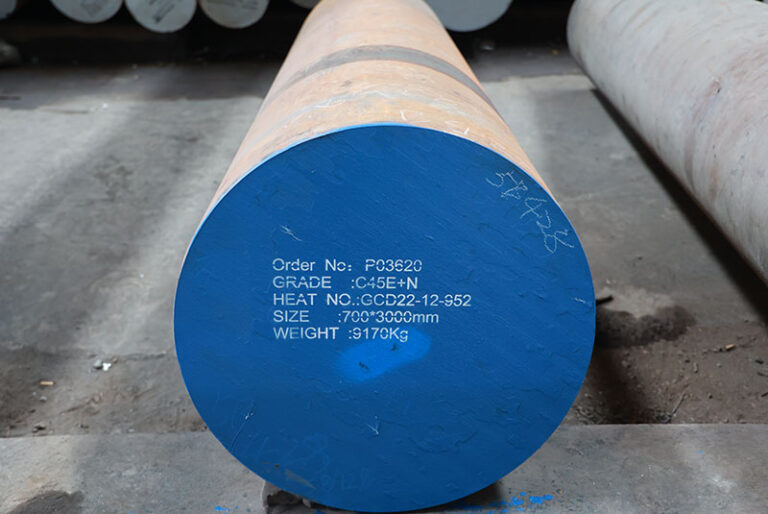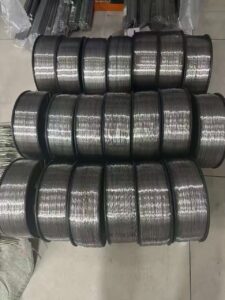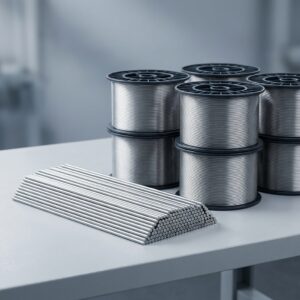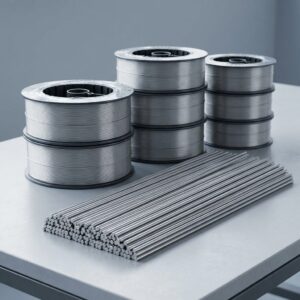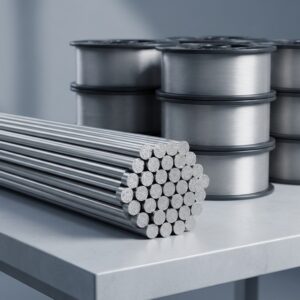Unveiling the Marvels of C45/1.1191/S45C Carbon Steel: A Comprehensive Exploration
Introduction
In the realm of metallurgy, certain materials emerge as pillars of innovation and reliability. Among them stands C45/1.1191/S45C Carbon Steel, celebrated for its exceptional properties crucial for engineering applications. Join us as we embark on a journey to uncover the intricacies and advantages of this remarkable material, delving into its composition, properties, applications, suppliers, pricing, and expert insights.
Overview of C45/1.1191/S45C Carbon Steel
C45/1.1191/S45C Carbon Steel stands out for its excellent combination of hardness, strength, and wear resistance, making it a versatile choice for various industrial applications.
Chemical Composition
| Element | Percentage |
|---|---|
| Carbon (C) | 0.42-0.50% |
| Silicon (Si) | 0.15-0.35% |
| Manganese (Mn) | 0.50-0.80% |
| Phosphorus (P) | 0.035% max |
| Sulfur (S) | 0.035% max |
| Iron (Fe) | Balance |
Mechanical Properties
- Tensile Strength: 650-800 MPa
- Yield Strength: 370-430 MPa
- Elongation: 17-25%
- Hardness (Brinell): 170-210 HB
Standards
- DIN EN 10083-2: Technical delivery conditions for non-alloy steels for quenching and tempering
Exploring the Features and Advantages
C45/1.1191/S45C Carbon Steel boasts a plethora of features and advantages that make it an ideal choice for engineering applications.
Features
- Good machinability and weldability
- Excellent wear resistance and toughness
- Suitable for heat treatment processes
- Versatile and readily available
Advantages
- Widely used in applications requiring high strength and durability, such as gears, shafts, and machine parts
- Provides reliable performance in demanding environments, including automotive, machinery, and construction sectors
- Offers cost-effectiveness and ease of fabrication
Comparison Between C45/1.1191/S45C Carbon Steel and Competing Materials
Let’s compare the advantages and disadvantages of C45/1.1191/S45C Carbon Steel with a competing material, Alloy X:
| Parameter | C45/1.1191/S45C Carbon Steel | Alloy X |
|---|---|---|
| Tensile Strength | Moderate | High |
| Hardness | Moderate | High |
| Machinability | Good | Moderate |
| Cost | Lower | Higher |
Applications and Uses
From automotive to machinery sectors, C45/1.1191/S45C Carbon Steel finds widespread application in various components subjected to moderate loads and wear.
| Industry | Applications |
|---|---|
| Automotive | Gears, crankshafts, axles |
| Machinery | Shafts, cams, bearings |
| Construction | Bolts, nuts, structural components |
Navigating Suppliers and Pricing
Sourcing C45/1.1191/S45C Carbon Steel requires careful consideration of reliable suppliers offering quality products at competitive prices.
| Supplier | Price Range (per unit) | Description/Notes |
|---|---|---|
| Thyssenkrupp | $1.50 – $3.00 per kilogram | Leading global supplier of carbon steels |
| Metal Supermarkets | $1.80 – $3.50 per kilogram | Specializes in small quantities and cut-to-size metals |
| Ryerson | $1.60 – $3.20 per kilogram | Offers a wide range of carbon steel products |
FAQs about C45/1.1191/S45C Carbon Steel
Q: Can C45/1.1191/S45C Carbon Steel be heat treated?
A: Yes, it can be heat treated to achieve desired mechanical properties, such as increased hardness and strength.
Q: What are the common applications of C45/1.1191/S45C Carbon Steel?
A: Common applications include gears, shafts, machine parts, and structural components requiring moderate strength and wear resistance.
Q: Where can I buy C45/1.1191/S45C Carbon Steel?
A: You can source C45/1.1191/S45C Carbon Steel from reputable suppliers such as Thyssenkrupp, Metal Supermarkets, and Ryerson.
Q: What specifications does C45/1.1191/S45C Carbon Steel conform to?
A: This carbon steel conforms to standards such as DIN EN 10083-2, ensuring compliance with stringent quality requirements.

